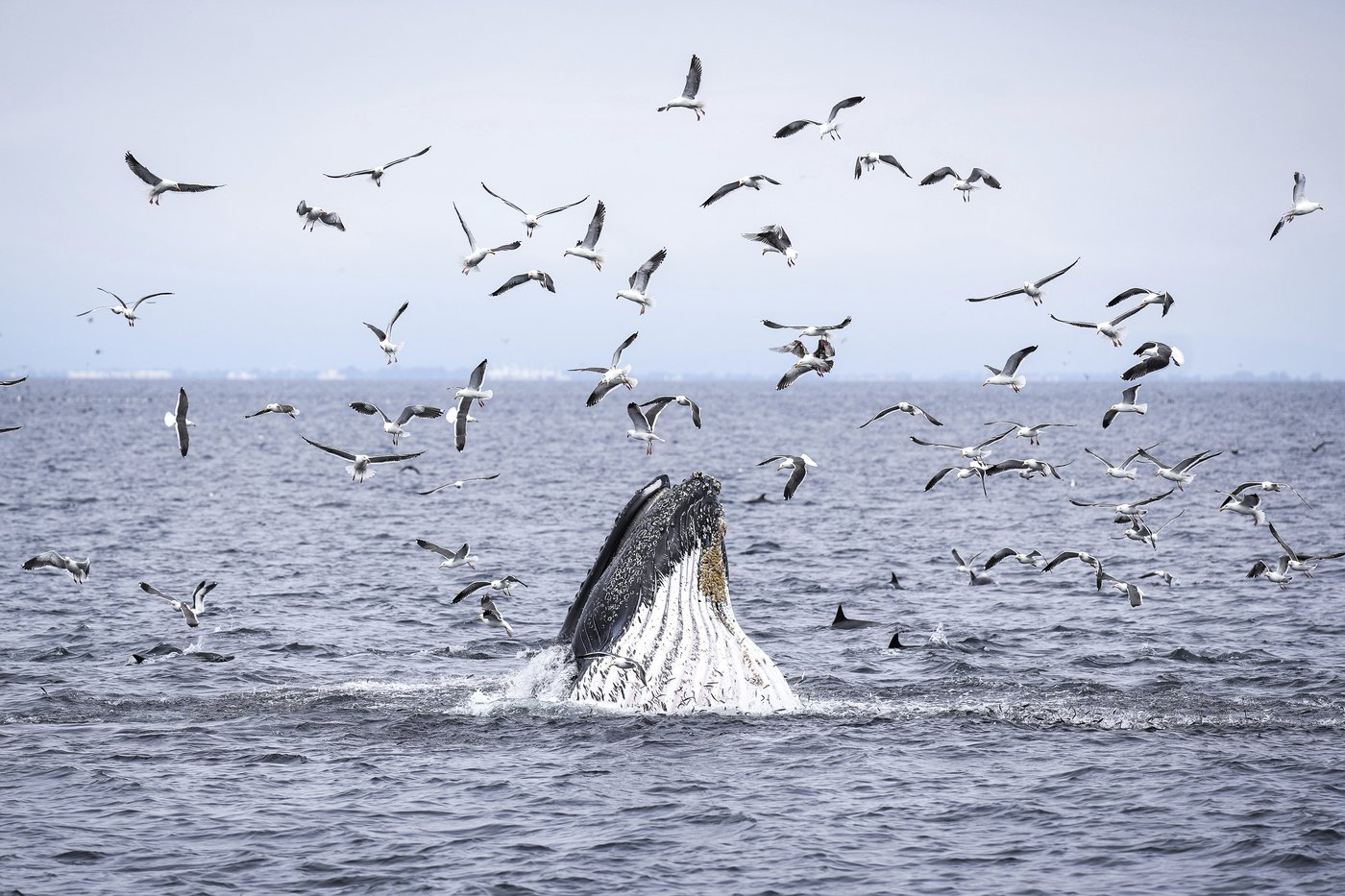Marine scientist says whale strikes ‘almost inevitable,’ urges boaters to slow down

VANCOUVER — A British Columbia marine mammal research scientist says recent boat strikes that have injured and killed humpback whales seem “almost inevitable” as their numbers increase in waters frequented by high-speed vessels.
Lance Barrett-Lennard with the Raincoast Conservation Foundation says humpback whale numbers were decimated by the whaling industry up until the mid 1960s, but have since rebounded and they are now reoccupying coastal waters in the Strait of Georgia.
Prince of Whales, a whale-watching tour company, says one of its vessels hit a whale last week in Howe Sound, before a dead humpback was found nearby off the coast of Keats Island.
Barrett-Lennard says no boat operator wants to hit a whale, and the “culture” of mariners is evolving to be more aware of the risks, “but not fast enough.”
He says it’s his understanding that the crew of the Prince of Whales vessel was devastated, and he hopes boats involved in whale-watching “redouble” efforts to avoid coming into contact with the animals.
Barrett-Lennard says vessels travelling at high speeds create more noise, which also harms whales, and dangers to whales could be lessened if boats reduced speeds in known whale “hot spots” and crews increase efforts to spot animals during voyages.
The whale found dead over the weekend is the second killed after a suspected boat strike in B.C. waters in six weeks.
A BC Ferries vessel is believed to have struck and killed a whale found dead in Wright Sound on the northern coast last month.
This report by The Canadian Press was first published Oct. 28, 2025.
Join the Conversation!
Want to share your thoughts, add context, or connect with others in your community?
You must be logged in to post a comment.


















